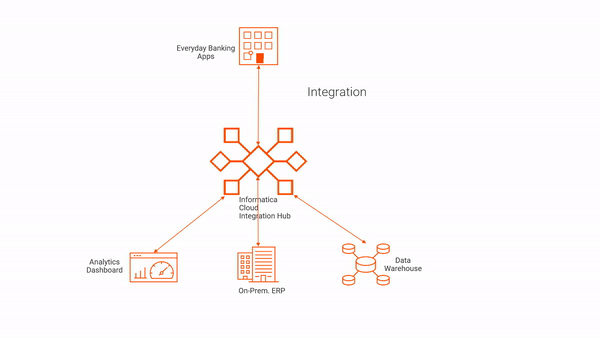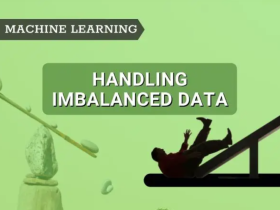Learn why data governance is crucial for the integrity, security and availability of data. Improve decision making & business success with our guide on data governance.
Data governance is a top concern in today’s day and age for several reasons. With the increasing amount of data being generated, organizations are facing the challenge of managing and making sense of this data.
According to a study by IDC, the global data sphere is expected to grow from 33 zettabytes in 2018 to 175 zettabytes by 2025. This means that organizations are dealing with an overwhelming amount of data, making data governance crucial to ensure that the data is accurate, consistent, and secure.
Data governance is crucial for organizations to comply with various regulations such as GDPR and CCPA. These regulations require organizations to take measures to protect personal data and ensure that data is accurate, complete, and up-to-date. Organizations that fail to comply with these regulations can face significant fines. According to a study by PwC, the total fines for GDPR violations in 2019 reached €56 million.
With the increasing number of cyber attacks, organizations need to ensure that their data is protected and that they have measures in place to detect and respond to any breaches. According to a study by Cybersecurity Ventures, cybercrime is projected to cost the world $6 trillion annually by 2021.With the increasing amount of data available, organizations need to ensure that the data is accurate, consistent, and complete to make informed decisions. According to a study by Gartner, organizations that effectively manage their data can expect to achieve a 23% improvement in revenue and a 12% improvement in profit.
Data governance is a top concern in today’s day and age due to the increasing amount of data being generated, the need for compliance with various regulations, the importance of data security, and the need for organizations to make data-driven decisions. Organizations that effectively manage their data can expect to achieve significant benefits in terms of revenue, profit, compliance and security.
But where should we start?
Revisiting your data governance strategy is an important step in ensuring that your organization’s data is accurate, consistent, and secure. While there are many prerequisites that organizations should focus on when revisiting their data governance strategy, some of the most neglected and unique areas that organizations should focus on include:
Data ownership: One of the most neglected areas of data governance is data ownership. Organizations should clearly define who owns the data and is responsible for its accuracy, completeness, and security. Without clear data ownership, organizations may face challenges in ensuring data quality and compliance with regulations.
Data lineage: Organizations should focus on understanding the lineage of the data, i.e., how the data was created, where it came from, and how it flows through the organization. This can help organizations to identify and address any issues with data accuracy, completeness, and security.
Data security: Organizations should focus on ensuring that their data is secure and that they have measures in place to detect and respond to any breaches. This includes implementing data encryption, access controls, and monitoring systems.
Data privacy: Organizations should focus on ensuring that they comply with data privacy regulations such as GDPR and CCPA. This includes implementing processes for data subject access requests, data deletion requests, and data breaches.
Data analytics: Organizations should focus on using data analytics to gain insights and make data-driven decisions. This includes implementing data visualization and reporting tools, data modeling, and machine learning algorithms.
Data quality: Organizations should focus on ensuring that their data is accurate, complete, and up-to-date. This includes implementing data validation, data cleansing, and data profiling processes.
Data governance structure: Organizations should focus on creating an effective data governance structure. This includes creating a data governance council, appointing data stewards, and implementing data governance policies and procedures.
Organizations should focus on these neglected and unique areas of data governance, when revisiting their data governance strategy. By focusing on these areas, organizations can ensure that their data is accurate, consistent, and secure, and that they comply with regulations, and gain insights and make data-driven decisions.
A unique data governance strategy is one that is tailored to the specific needs of an organization. It should take into account the organization’s industry, size, and data management maturity level.
One key element of a unique data governance strategy is to establish a data governance council. This council should be made up of representatives from different departments within the organization, including IT, finance, marketing, and legal. The council should be responsible for setting data governance policies and procedures, and for ensuring that these policies are followed.
Another important element of a unique data governance strategy is to appoint data stewards. These individuals should be responsible for ensuring that data is accurate, complete, and up-to-date, and for ensuring that data is being used in compliance with data governance policies and regulations.
In addition, organizations should focus on implementing data security measures to protect against cyber threats. This includes implementing data encryption, access controls, and monitoring systems. Organizations should also focus on ensuring compliance with data privacy regulations such as GDPR and CCPA, by implementing processes for data subject access requests, data deletion requests, and data breaches.
Another important aspect is to focus on data analytics and data-driven decision making. Organizations should focus on using data analytics to gain insights and make data-driven decisions.
This includes implementing data visualization and reporting tools, data modeling, and machine learning algorithms.One good example for this is GE. GE has implemented a data governance council made up of representatives from different departments within the organization. The council is responsible for setting data governance policies and procedures, and for ensuring that these policies are followed.
GE has appointed data stewards who are responsible for ensuring that data is accurate, complete, and up-to-date, and for ensuring that data is being used in compliance with data governance policies and regulations.
With the increasing importance of data-driven decision making, it is essential for organizations to have a robust data governance system in place. Now, we will take a look at the top 5 data governance software to consider for your organization.
Collibra: Collibra is a leading data governance software that offers a wide range of features for data management, including data cataloging, data lineage, and data quality management. Its intuitive interface and flexibility make it a great choice for organizations of all sizes.
Informatica: Informatica is a well-established player in the data governance space. Its software offers a comprehensive set of features including data quality, data integration, and master data management. Its ability to integrate with other systems makes it a great choice for organizations with complex data environments.

Alation: Alation is a data cataloging and discovery tool that offers a wide range of features to help organizations manage their data. Its unique feature is its ability to automatically discover and document data assets, making it easy for users to find the data they need.
SAP Information Steward: SAP Information Steward is a data governance software that offers a wide range of features including data profiling, data lineage, and data quality management. Its ability to integrate with other SAP systems makes it a great choice for organizations that use SAP as their enterprise resource planning system.

Talend: Talend is a data integration and management software that offers a wide range of features including data quality, data integration, and data governance. Its open-source nature makes it a great choice for organizations that want a cost-effective solution.

In conclusion:
Choosing the right data governance software for your organization depends on a variety of factors such as size, complexity of the data environment, and budget. It is important to evaluate the features of each software and choose the one that best fits your organization’s needs. Additionally, it is important to consider the ability to integrate with existing systems, scalability, and ease of use when making a decision.









